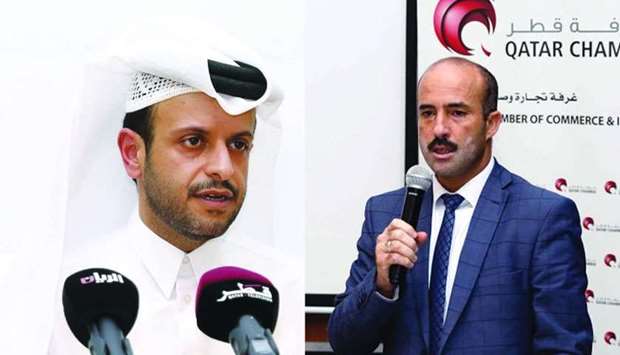The list of consumer products that were chosen by the government for levying excise tax last month is 'not final' even as some goods could either be added or removed from the list, an official of the General Tax Authority (GTA) said at a seminar on excise tax organised by Qatar Chamber on Wednesday.
On January 1, Qatar officially imposed excise taxes on carbonated drinks (50% rate) and tobacco products and energy drinks (100%), among other items that fall under “excise goods” to limit consumption of several items, while raising government funds for public services.
A statement from Qatar Chamber quoted GTA head of Indirect Tax Hamad Mohamed al-Attiyah as saying, “that the list of goods of [excise] tax is not final…other goods can be added or existing goods can be removed.”
A Qatar News Agency dispatch quoted al-Attiyah as saying "…that the list of items specified in the [excise] tax is subject to be increased or decreased, as it may be added to the items or cancelled from others".
“Excise tax is a form of indirect tax levied on specific goods that are deemed harmful to human health or the environment. The intent of excise tax is to reduce consumption of such goods, while also raising revenues for the government that can be spent on public services,” al-Attiyah said.
He noted that the new tax was “well-received by the Qatari community,” and affirmed that it will have no impact on the upcoming events hosted by the country, specifically the 2022 FIFA World Cup.
During the seminar, GTA’s indirect tax expert, Samy Nasr, explained in a presentation the main characteristics of the excise tax, the goods it covers, the persons responsible for the tax, how to calculate excise tax, exemption and suspension cases, recovery cases, and compliance requirements.
Nasr also said all companies engaged in the import, production, or storage of excise goods would be subject to excise tax. The law specifies taxpayers, local producers, importers, warehouses, and treasurers.
Excise tax is calculated as a percentage of the value determined in accordance with the selective tax law, Nasr said. The taxpayer “will be required to submit a registration application within 90 days from the date of application or within 30 days of the activity for companies intending to practice the activity,” he continued.
Nasr said diplomatic and consular bodies, as well as international organisations are exempted from excise tax, including excise goods carried by travelers coming to Qatar, provided that they are “not of commercial nature and are within the permissible limit and goods sold in duty free shops and goods that are intended for consumption on international air and maritime transport.”
Participants of the seminar, particularly Qatari businessmen, called for more workshops on Excise Tax to raise further awareness on the application of the Excise Tax law, the identification of taxes and other items, and related concerns of suppliers.
Speaking to Gulf Times on the sidelines of the seminar, Nasr said aside from excise tax, the state will also implement Value Added Tax (VAT) in Qatar, but declined to provide further details as to when VAT will take effect in the country.


